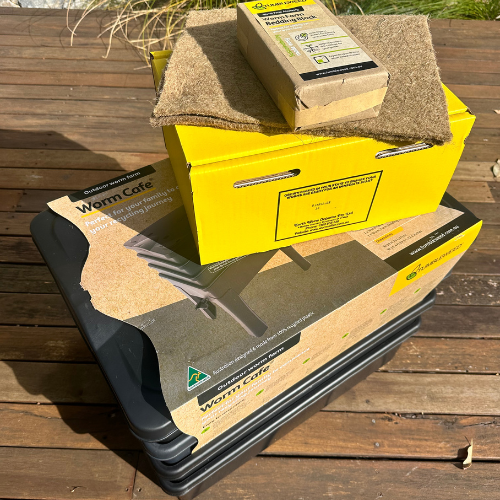The Importance of Replenishing Nutrient Stores
Postpartum nutrition is essential for replenishing the nutrient stores that may have been depleted during pregnancy and childbirth. Your body has expended a significant amount of energy and resources to support your baby's growth, and now it's time to refuel and rebuild. Nutrient-rich foods and supplementation can help replenish essential vitamins and minerals, supporting your recovery and overall wellbeing.
Symptoms of Postpartum Depletion
Postpartum depletion can manifest in various ways, both physically and emotionally. Some common symptoms of postpartum depletion include:
-
Fatigue: Feeling excessively tired or rundown, despite getting an adequate amount of sleep, is a common symptom of postpartum depletion. Depleted nutrient stores can contribute to feelings of fatigue and low energy levels.
-
Mood Changes: Postpartum depletion may also affect your mood, leading to symptoms of irritability, anxiety, or depression. Nutrient imbalances, particularly in essential vitamins and minerals like vitamin D, B vitamins, and omega-3 fatty acids, can impact mood stability.
-
Hair Loss: Experiencing hair loss or thinning hair after childbirth is a common occurrence due to hormonal changes. However, postpartum depletion can exacerbate this symptom, leading to more pronounced hair loss or slower regrowth.
-
Weakness or Lightheadedness: Depleted nutrient stores, particularly iron, can lead to symptoms of weakness, dizziness, or lightheadedness. Iron deficiency anemia is common among postpartum women and can contribute to feelings of weakness or fatigue.
-
Difficulty Concentrating: Postpartum depletion may also impact cognitive function, making it challenging to concentrate or focus on tasks. Nutrient deficiencies, such as low levels of vitamin B12 or folate, can affect brain health and cognitive function.
Key Nutrients for Postpartum Health
Certain nutrients are particularly important during the postpartum period. Iron, for example, is crucial for replenishing iron stores that may have been depleted during pregnancy and childbirth.
Building a Postpartum Nutrition Plan
Creating a tailored postpartum nutrition plan is essential for replenishing nutrient stores, supporting recovery, and promoting overall health and wellbeing during this critical period. Here are some key steps to consider when developing your postpartum nutrition plan:
-
Assess Nutrient Needs: Start by assessing your individual nutrient needs based on factors such as age, health status, breastfeeding status, and any preexisting nutrient deficiencies. Consider working with a healthcare professional, such as a registered dietitian or a naturopathic doctor, to determine your specific nutrient requirements.
-
Focus on Nutrient-Dense Foods: Prioritize consuming a variety of nutrient-dense foods to meet your body's increased demands for essential nutrients. Include plenty of fruits, vegetables, whole grains, lean proteins, healthy fats, and dairy or dairy alternatives in your diet to ensure adequate intake of vitamins, minerals, and antioxidants.
-
Support Breastfeeding: If you're breastfeeding, it's essential to maintain optimal nutrition to support milk production and provide your baby with essential nutrients. Aim to consume an additional 300 to 500 calories per day from nutrient-rich foods, such as lean proteins, whole grains, and healthy fats. Stay hydrated by drinking plenty of water throughout the day.
-
Include Iron-Rich Foods: Iron is especially important during the postpartum period to replenish depleted stores and prevent iron deficiency anemia. Include iron-rich foods such as lean meats, poultry, fish, legumes, fortified cereals, and leafy green vegetables in your diet. Pairing iron-rich foods with vitamin C-rich foods can enhance iron absorption.
-
Prioritize Omega-3 Fatty Acids: Omega-3 fatty acids, particularly EPA and DHA, play a crucial role in supporting postpartum mood, cognitive function, and overall health. Include fatty fish such as salmon, mackerel, and sardines in your diet, as well as plant-based sources like flaxseeds, chia seeds, and walnuts.
-
Consider Supplementation: In some cases, dietary supplementation may be necessary to address specific nutrient deficiencies or ensure adequate intake of essential nutrients. Discuss supplementation options with your healthcare provider to determine if you would benefit from additional vitamins, minerals, or other supplements.
-
Practice Mindful Eating: Pay attention to your hunger and fullness cues, and practice mindful eating to foster a healthy relationship with food. Aim to eat regular meals and snacks throughout the day, and avoid skipping meals or relying on convenience foods high in refined sugars and unhealthy fats.
By following these guidelines and tailoring your postpartum nutrition plan to meet your individual needs, you can support your body's recovery, optimize your health, and enjoy a smooth transition into motherhood.
The postpartum period is a time of significant transition and adjustment, both physically and emotionally. Prioritizing nutrition during this time can support your recovery, energy levels, and overall wellbeing, allowing you to thrive as you navigate the joys and challenges of new motherhood. Remember to listen to your body's cues, nourish yourself with nutrient-rich foods, and seek support from healthcare professionals if needed.
If you have any questions or concerns about postpartum nutrition, contact your GP for blood tests or see your Naturopath/Nutritionist. Practitioners are here to support you on your journey to optimal health and wellbeing.
Here's to health,
Aliesha Shorten ND





